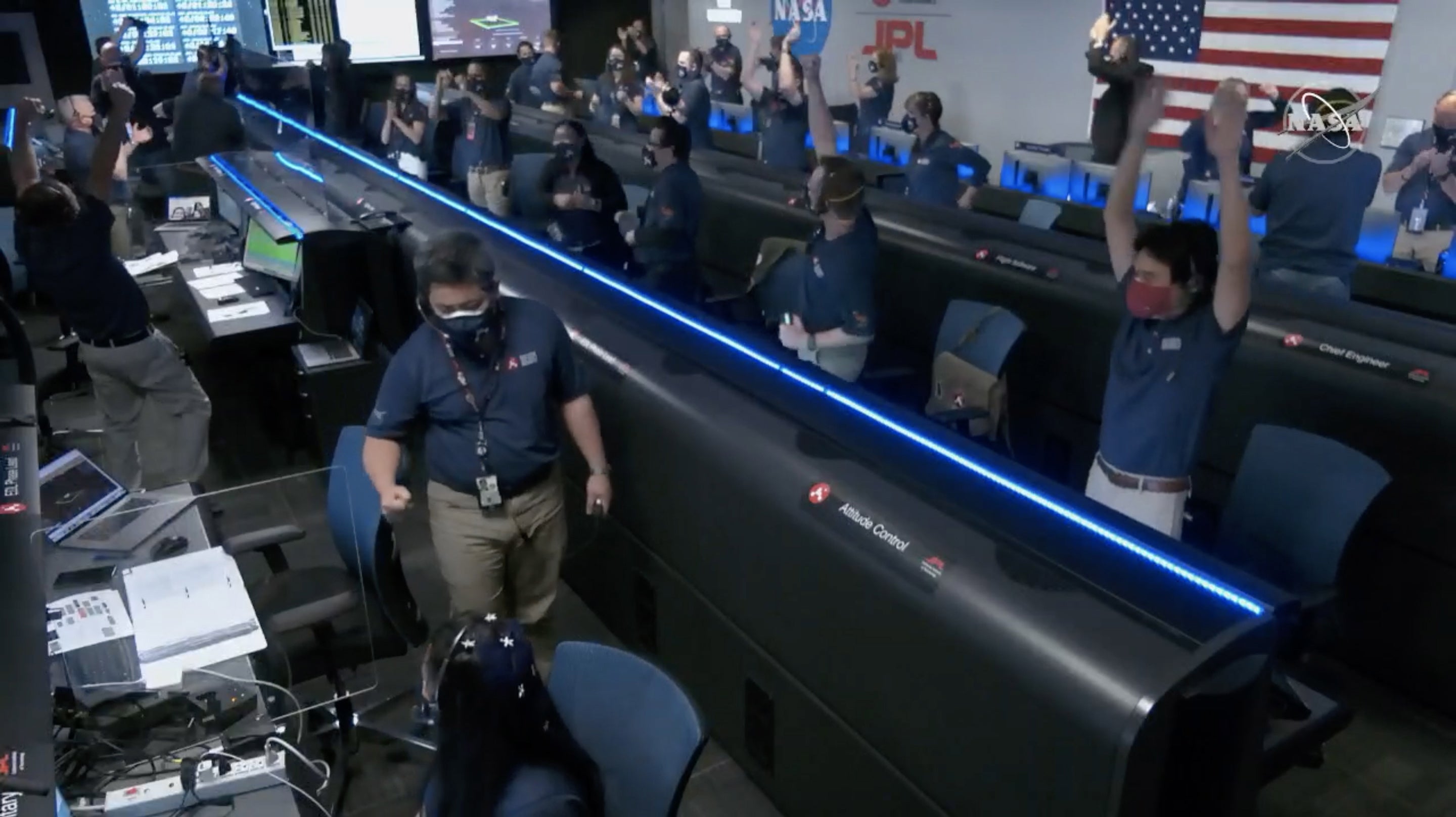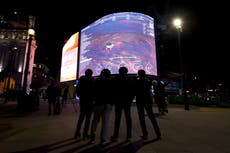There’s nothing like space travel to remind us how brilliantly minute and reassuringly insignificant we are
How can you not be in awe when you see what human beings can do when we pull our heads out of all the nonsense here on Earth – and look at what else could possibly be out there?


I got teary watching Perseverance rover land safely on Mars, yesterday. The scientists jumping for joy, clapping their hands and cheering as they heard these words from flight controller Swati Mohan (whose relief and excitement crackled in her voice): “Touchdown confirmed – Perseverance is safely on the surface of Mars, ready to begin seeking the signs of past life.”
Nasa got a massive chunk of metal to actual Mars, complete with cute little parachute (though it was probably massive, to be fair) to slow it down; so it doesn’t explode or bounce back off. It has on it not a plain old GoPro camera, but a Navcam, which makes its own decisions where it wants to go, without checking in with the controllers on Earth. It does this by having a mind of its own, as it is magic (it should be clear by this point that I am not a scientist).
I confess I’m not the most informed person about space – and space travel. My seven-year-old daughter had to explain to me that Earth’s distance with Mars changes massively because they both rotate around the sun, and, “sometimes it’s really, really far, and sometimes it’s not THAT far”. Fancy that (later today she’s teaching me how to make duck pate en croute).
I asked her why no person has been to Mars yet, and she told me it’s because the shortest amount of time it would take to get there is six months; and “they don’t know how humans can cope in a spaceship for that long”. “They’ve gone to the moon, though!” I said.
She gave me an almighty eye-roll and said: “The moon is MUCH nearer mummy, did you not know that?” “I did,” I said hurriedly. “I just... forgot. Please don’t tell your brother.” If she told my son, I’d never hear the end of it – he is 13 and would never stop laughing at me.
My children are both enthralled by physics, whereas I’m getting into it late in life. It seems bonkers, now, when I think how resistant I was to learning physics at school. It was seen as a “boys’ subject”; one just for boffins, who had no social skills.
I was conditioned to think it was boring – mostly by my physics teacher, a terrifying man who threw a board rubber at me once because I asked my friend what we were supposed to be doing (in fact, I think I uttered this phrase more than any other at school. I never had a clue what was going on in my science classes. Luckily, I had the good sense to make friends with geeks and nerds – and learned more from them at school than I did from weary teachers in charge of 30 children who knew as much about my ADHD as I did about their longitudinal waves and photosynthesis).
Perhaps throwing things at us was our teacher’s crude way of engaging our interest in aerodynamics? Either way, it didn’t work for me. I dropped physics the moment I was able to – and what a shame! If I had the resources, teachers and the BBC Bitesize my children have today, perhaps I’d have grown up to be Brian Cox.
“Physics is boring,” I used to say, when I think I just meant, “I’m terrified of that teacher, please don’t make me go in there again”.
I was one of the children who was marked out as “arty”, because I loved English, where you can get lost in a story; or sociology, where you get to learn about a girl in Portugal who was raised in a chicken coop. But what is more “arty” than how our universe is put together? What can fire up our collective imagination more, than the idea that life may exist outside of our own quirky planet?
I watched Perseverance land, with my children, who couldn’t understand why their mother was getting teary at something as ordinary as a space craft, landing on a planet 300 million miles away, at 24,600 mph. I’m amazed when I make it from London to Portsmouth and the Isle of Wight ferry port in under two hours. I do a celebratory dance all the way to the little coffee shop.
Space travel blows my mind. How can you not be in awe when you see what human beings can do when we pull our heads out of all the nonsense here on Earth – and look at what else could possibly be out there?
If they find signs of life on Mars, it will lead to all sorts of answers as to how us lot on Earth came about. While the rest of us flap about on Twitter about “culture wars”, and fret about whether the words we are using may or may not offend a small community of people in Guatemala, these scientists are moving our species forward: to infinity, and beyond.
Join our commenting forum
Join thought-provoking conversations, follow other Independent readers and see their replies
Comments


Bookmark popover
Removed from bookmarks